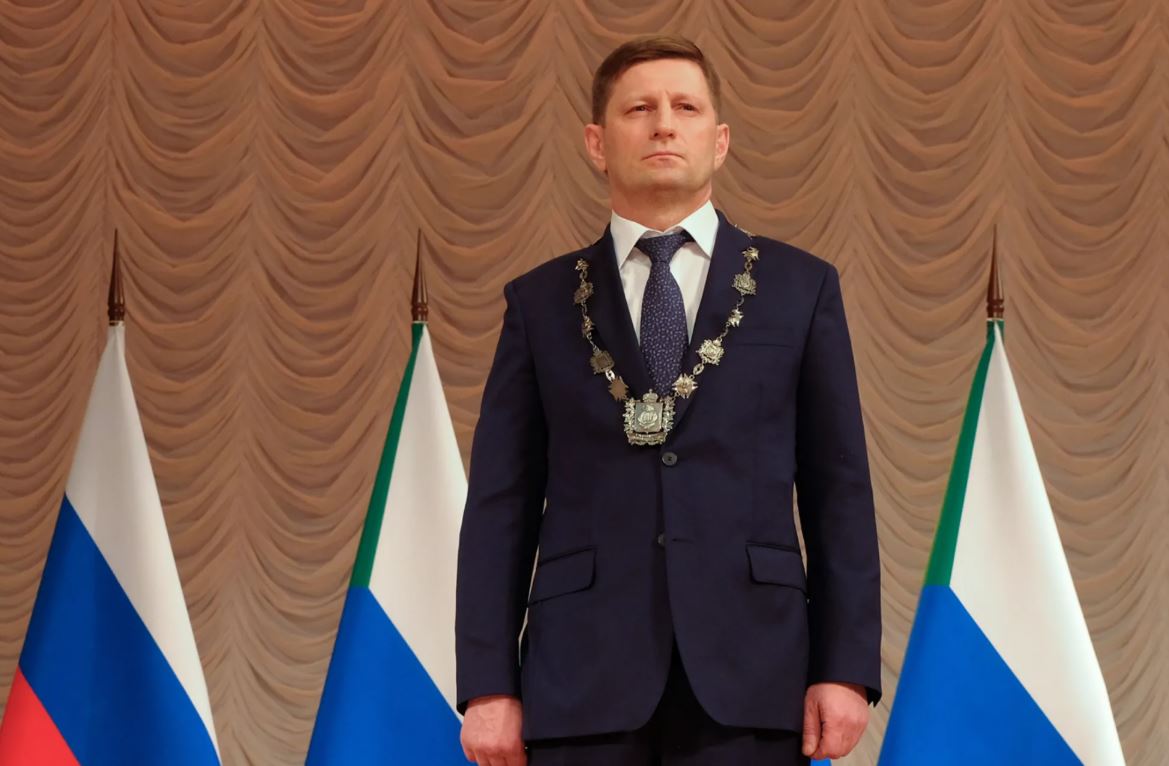RA’s Daily Russia News Blast – July 10, 2020

Today in Russia: Moscow will no longer require masks outdoors from July 13; Arrested Khabarovsk governor Furgal has outpouring of support in what is a complicated power struggle – the backstory; A timeline of post-referendum crackdown; Denmark and Nord Stream 2; Kadyrov blames “Russia’s enemies” for killings of Chechens abroad
Moscow will end the requirement to wear a mask outdoors from July 13, with Mayor Sergei Sobyanin citing a decline in COVID-19 cases in the capital. Masks will still be required in all indoor public places including public transport. Beaches in Moscow have been closed since large crowds began showing up at the river beaches in the city as the weather warms up. Russia reported 6,509 new cases of COVID-19 on Friday.
The arrested governor of Khabarovsk Krai Sergey Furgal, of the LDPR party, has a long back story. Furgal served two terms in the State Duma, where he enjoyed the tacit backing of the Kremlin. In 2013, Furgal ran for the Khabarovsk governorship, where he was viewed as “a convenient sparring partner” for the United Russia governor there, and Furgal lost that election handily. But by the 2018 elections, things had changed. While “Furgal seemed more interested in reminding the public about himself ahead of parliamentary elections than running for the governor’s seat” the election went to a run-off, and Furgal won in a landside.
Recognizing the danger of winning an election you are not supposed to in Russia, Furgal reportedly even left the region in time for the runoff, and spoke of serving as the United Russia candidate’s deputy. In effect, Furgal was “made popular, kicking and screaming,” and the Kremlin was so displeased by Furgal’s victory it moved the capital of the Far Eastern District from Khabarovsk to rival city Vladivostok and opening a criminal investigation into a former governor who had supported Furgal.
Thus, the charges of contract killings – while not demonstrably false, given that Furgal worked in the rough and tumble industries of scrap metal and logging – the arrest is viewed as highly political and Furgal has enjoyed an outpouring of support from his constituents since his arrest.
RBC reported [in Russian] that the prosecutor has claimed that threats had been made against Furgal and others involved in the case, and have thus been granted permission to hold the trial and proceedings behind closed doors. Furgal said he has experienced no such threats.
Moscow Times put together a timeline outlining the Kremlin’s brutal crackdown on all forms of dissent since the referendum, from the arrest of a journalist for “justifying terrorism,” to charges of treason, to “pornographic feminism” to murder charges against Furgal and raids of media outlets. Russia has taken a worrying turn towards yet more authoritarianism since the victory in the constitutional referendum.
The Wall Street Journal wrote that Denmark granted “unexpectedly swift approval” for the Nord Stream 2 pipeline. The US has long opposed the pipeline and has threatened sanctions in an effort to thwart its construction.
Chechen strongman Ramzan Kadyrov definitely, absolutely, positively has nothing to do with the string of murders of Chechen opposition figures in Europe. In fact, its enemies of Russia – and foreign intelligence services – which have blood on their hands, according to Kadyrov. Moscow Times wrote, “Kadyrov put forward the theory after the body of his reported “personal foe” Mamikhan Umarov, 43, was found in the Austrian capital Vienna on Saturday. Two ethnic Chechens have been arrested in connection with the killing of Umarov, who is also known as Anzor of Vienna.”
PHOTO: Sergei Furgal is inaugurated as Khabarovsk Krai governor in 2018 (Dmitry Morgulis / TASS).











